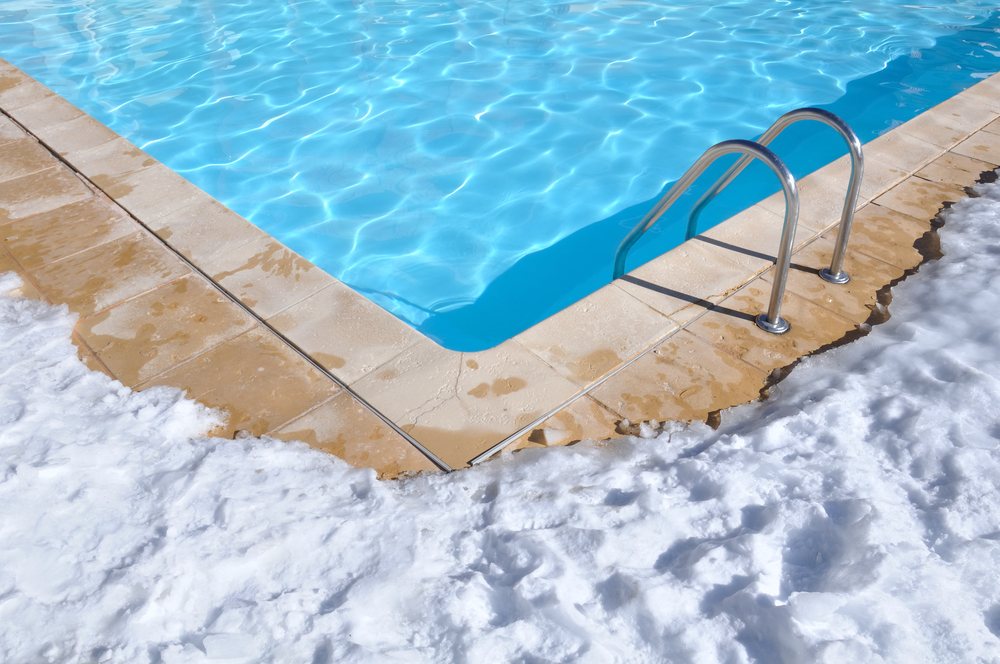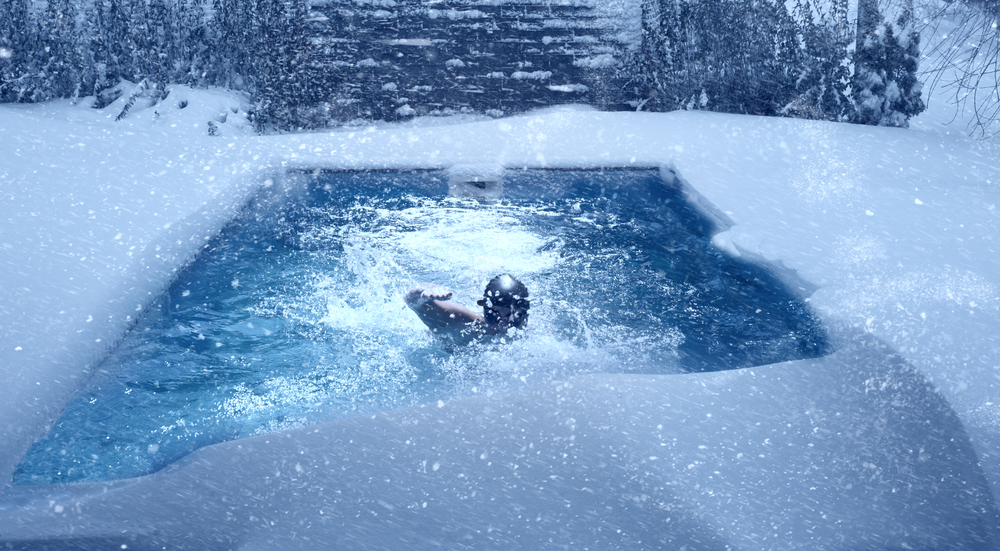We’re certainly hoping your swimming pool has been winterized and that it will survive the upcoming winter. We also realize that not all areas of the country are in a deep freeze nor are they dealing with snow and ice. We also know that the weather can change with the shifting of the winds and you need to know how to prevent winter pool damage no matter where you live.
We’ve put together a checklist of ways to protect your swimming pool this winter and prevent damage. If you haven’t taken some of these steps already you may want to call your pool contractor or do it yourself to protect it before the weather changes.
 How To Prevent Winter Pool Damage
How To Prevent Winter Pool Damage
- Winterize. This is often a sad time of year for many pool owners. They have to admit that swim season is over for another year and they will be bidding goodbye to the pool until spring. The best way to protect the pool, your investment and its equipment is by having a professional pool contractor winterize it for you. Your pool contractor will thoroughly clean the pool and its water, he will pour antifreeze into equipment and/or blow out all of the water. The pool water level will be dropped, equipment may be removed and covered and stored for the season. Algaecide and chemicals will be added and a cover will be put firmly in place.
- Run the pumps. If you’re one of those lucky pool owners who may still be able to use the pool throughout the winter if you use a pool heater, congratulations! If this is the case, make sure you keep the pool pump running. Some pool contractors recommend running it 24/7 so you don’t run the risk of the equipment freezing and getting damaged.
- Freeze guard equipment. Ask your pool contractor about whether an automatic freeze guard makes sense for your pool. This is a device that will detect when the temperatures are dipping to the freezing levels. When that happens the device automatically starts the pool pump and keeps the water moving until the temperatures warm up again.
- Clear the cover. When the pool is closed and the winter cover is on your pool runs the risk of snow and ice and melting from the snow and ice and this can put a lot of strain on the cover. When there is a melt, use a wet-dry vac to remove water from the cover. If there is a heavy snowfall, use a soft broom and brush as much of the snow off the cover as you can.
- The pool is frozen, now what? This is a state we never want our pool customers to be faced with, but it does happen. Weather can change in the blink of an eye and if that happens and you aren’t home to care properly — and quickly — for the pool, freeze damage can occur. If this happens to you, turn off the power at the circuit breaker, cover all of the equipment with thick woolen blankets and form a tent around it; turn on a small, portable heater and place under the blanket to gently warm the equipment. Don’t leave this unattended as it is a fire hazard. When the equipment has thawed, inspect the pipes and connectors for any cracks. Call your pool contractor and ask him or her to come and inspect your pool. At this point, also ask for the pool to be winterized.
Winter bottom line
Pool owners in the areas of the country that are accustomed to freezing will likely have had their pool winterized and may not be faced with these situations. Regardless of where you live, though pay attention to your pool throughout the winter season to make sure it’s protected and covered.

